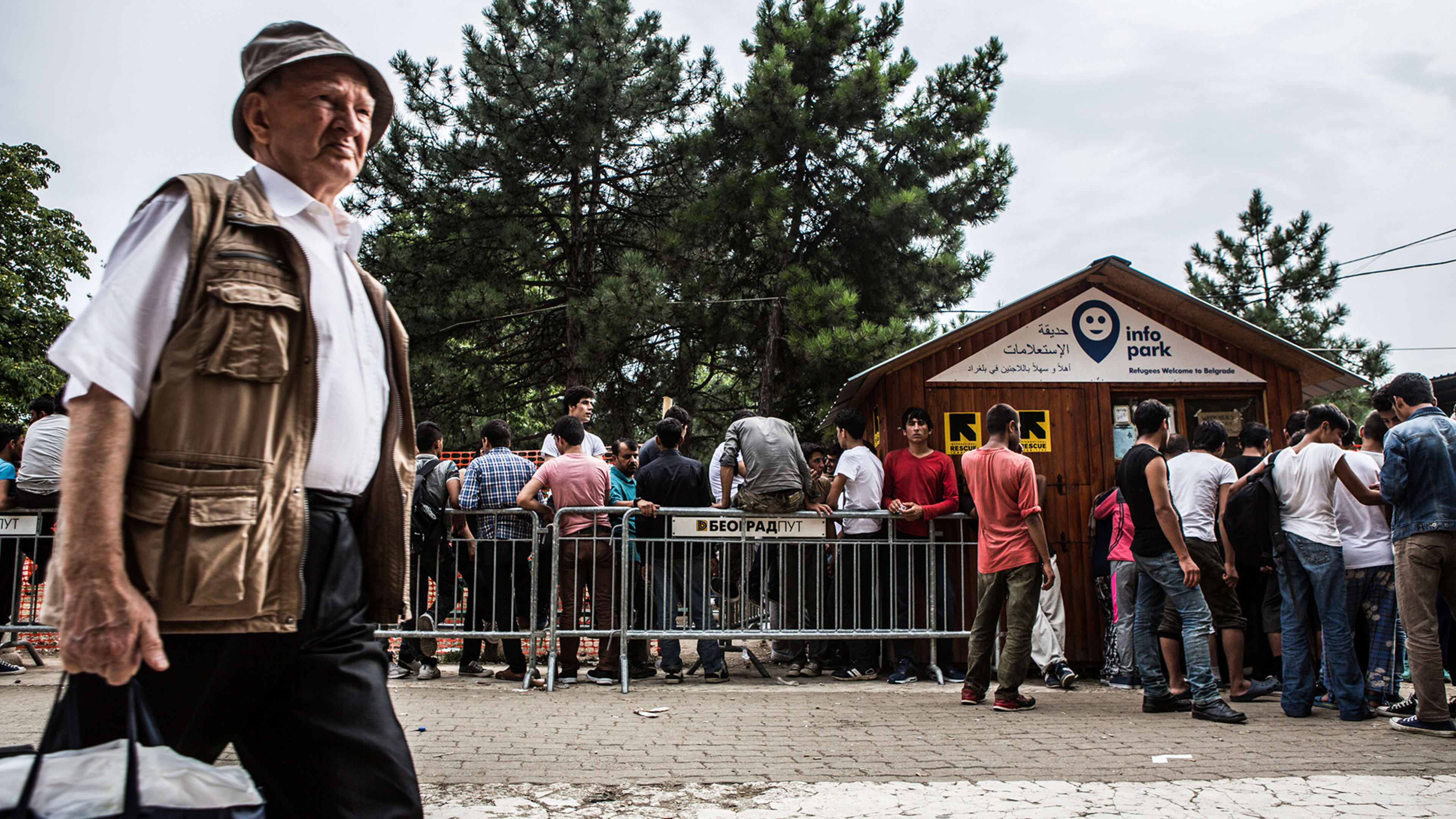Before The Crisis
If a disaster, such as civil war or famine, appears imminent, the International Rescue Committee reaches out to its network of donors—including governments of the United States, Sweden, and Switzerland—who are able to write checks quickly. Security experts at the IRC monitor the region and decide when and how to send in an emergency response team.
First 72 Hours
After creating immediate shelters, IRC ground crews move quickly to provide water, sanitation, medical treatment, and nonfood items (like weather-related gear) to prevent the outbreak of disease.
First Two Weeks
At this stage, cash is king. The IRC provides refugees with enough money, either as donations or payment for work done, to help them purchase what they require most: food, clothing, and household supplies. “[Money] gives those affected by the crisis the decision-making power and dignity to choose what their family really needs and to shop as normal people,” says director of emergency response Bob Kitchen.
First Two To Six Months
The IRC begins working with refugees to establish a home away from home, building schools to provide children with a sense of
routine, aiding women with family planning, and meeting regularly with community leaders to figure out the refugees’ needs. “You need to build trust,” says Kitchen. Which takes time. “We spend hours explaining who we are as an organization and what we’re there to do.”
Recognize your brand’s excellence by applying to this year’s Brands That Matter Awards before the early-rate deadline, May 3.
